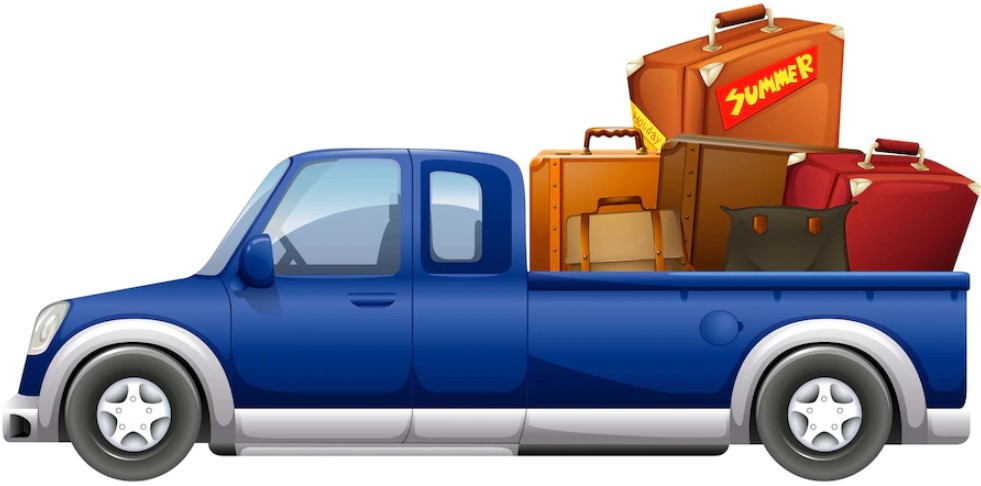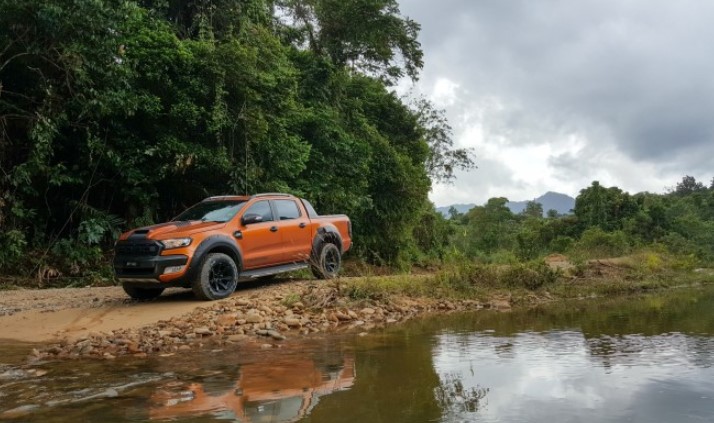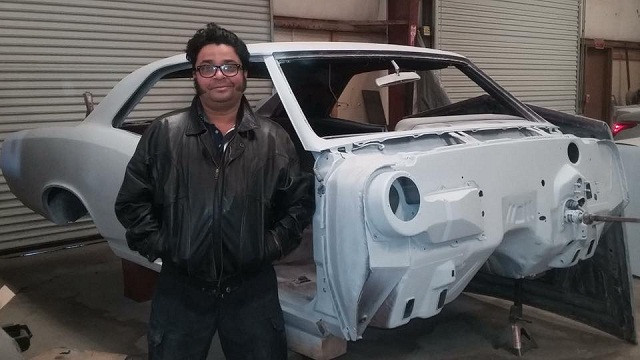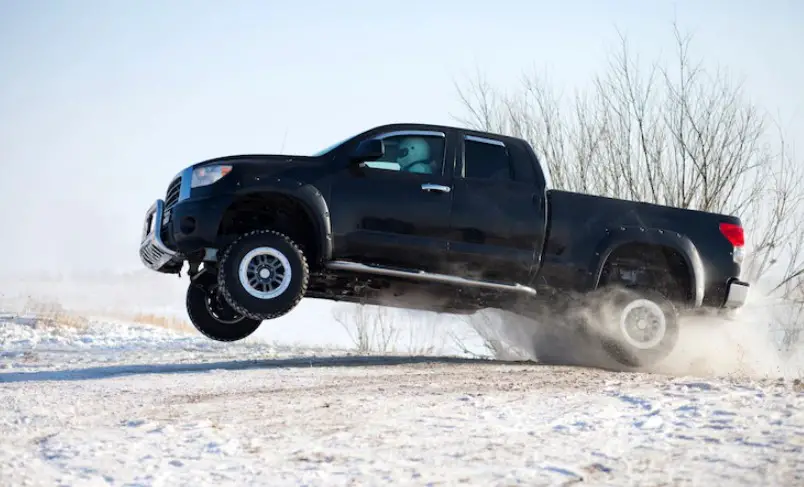Last Updated on February 14, 2023 by Leepu Da Maxim
A 1-ton truck refers to a vehicle with the stability, suspension, and structural integrity to carry one ton of payload or cargo weight beyond the truck’s weight. Toyota has made several attempts at making a 1-ton truck in the past. They made the T100 and Toyota 1-ton, and it is not apparent whether Toyota will make another 1-ton truck.
Key Takeaways
- A 1-ton truck is considered a medium-duty commercial vehicle and it is best to use for light construction or delivery work
- A 1-ton truck has a weight capacity of around 2,000-2,500 pounds (907-1134 kilograms)
- The Toyota T100 is a 1-ton truck from Toyota and it was in production from 1993 to 1998
- The Toyota T100 is the first 1-ton truck from Toyota and it was offered with a standard cab, a 3.0-liter V6 engine, a 3.4-liter V6 engine, and a 3.4-liter inline-four engine
Understanding the Terminologies
When talking about truck sizes, a lot of jargon can confuse a beginner. Let’s take a look at all those terms and their meaning.
GVWR
You will hear this most common word, and many are left wondering what it means. GVWR is an abbreviation for gross vehicle weight rating. It describes the maximum total safe weight of the vehicle.
For example, if a truck has a curb weight of 3,000 pounds and the GVWR of the truck is 6000 pounds, it means that the truck can add 3,000 pounds to its weight and still function properly.
Exceeding the GVWR is risky and can endanger the driver and passenger; it is illegal and will get you a ticket, so ensure you adhere to your vehicle’s GVWR.
Towing capacity

The towing capacity refers to a vehicle’s maximum weight capacity, specifically how heavy a trailer can tow.
The exact towing capacity of your vehicle is usually stamped on the vehicle identification number plate that’s found either on the door pillar or under the bonnet. If you have difficulty finding it, refer to the vehicle owner’s manual, which will guide you to its location.
Curb Weight
Curb weight refers to the total weight of an empty vehicle.
Payload
Payload refers to the total weight of passengers and cargo. The payload capacity is the maximum weight a vehicle can carry, including cargo and passengers.
GAWR
GAWR is an abbreviation for Gross axle weight rating, and it refers to the maximum weight that a vehicle’s front and rear axles can withstand. Each axle has its rating by the manufacturer; FR is the front rating while RR is the back rating.
This rating accounts for passengers, cargo, and the possibility of a trailer in tow. Exceeding this limit could cause severe damage to the vehicle’s axles.
What is a 1-Ton Truck?

SUVs and pickup trucks are classified as either one-ton, three-quarter-ton, or half-ton. These classifications are usually by the vehicle’s payload capacity. The car’s payload capacity is the maximum weight it can carry in its passenger and cargo areas. It is not only the weight of what’s in the pickup bed but also the people and luggage in the entire vehicle.
Traditionally, a ton equals 2,000 pounds, so 1-ton trucks carry up to 2000 pounds. Currently, Toyota doesn’t offer 1-ton trucks. Some of the best 1-ton in the market are GMC Sierra 3500, Ford super duty F-350, Chevrolet Silverado 3500, and RAM 3500.
The classification has been proven to underrate the actual payload of the trucks. For example, the 1-ton truck has been established to safely haul more than 2 tons or 4,000 pounds. It is possible to achieve higher payloads and class by reinforcing the frames, suspension, engine, and brakes.
Who Should Buy a 1-Ton Truck?
A 1-ton truck is perfect for anyone involved with heavy towing and hauling for their vehicle. This classification is best if you want to tow large RVs or boats. It is also ideal for towing and hauling on steep grades because they come with powerful engines.
Why Don’t Toyota Make a 1-Ton Truck?
Toyota makes trucks, but only light-duty, either ½ ton or ¾ ton, such as the tundra and Tacoma. Toyota’s light-duty trucks have decent sales as consumers are loyal to the brand.
There are several reasons why Toyota may not make a 1-ton truck soon:
- Toyota has ramped up production at its plants to create more light-duty trucks leaving no space for manufacturing heavy-duty trucks.
- Since production is high, the cost of producing a 1-ton truck could be higher than Toyota is willing to risk. They will need to invest in engineering and a whole new plant for heavy-duty trucks.
- The heavy-duty truck market is already competitive, and Toyota will need to work extra hard to make a mark against the existing models.
Toyota Trucks Lineup and Capabilities

Even though we might never see a 1-ton Toyota truck again, we will always be mesmerized by the brand’s attempt to make a heavy-duty truck. The lightweight trucks have also received much praise for their dependability. Let’s have a look at the Toyotas truck lineup and its capabilities.
Toyota 1-ton
The Toyota 1-ton model was in production from 1985 to 1992. It had an option of a 2.4-3L, 4–6-cylinder engine with either an automatic or manual transmission. According to Toyota, this model had a payload of 2655 lbs. and a towing capacity of 5000 lbs. The model has a combined fuel efficiency of 19mpg.
Toyota T100
The Toyota T100 is a full-size pickup truck produced between 1992 and 1998. This model is the closest Toyota has gotten to making a 1-ton truck. It was made strictly for the US and Canadian markets, where larger pickups have a sizable market share.
This model brought to light Toyota’s philosophy of designing products specific to their international markets, especially where products made and sold in Japan wouldn’t sell well.
This model’s sales were low initially, but eventually, they reached the mid-40,000 vehicles sold range. It was criticized for its lack of a v8 engine and for being too small to appeal to buyers of full-size work trucks. However, it received some awards such as the JD Power and associates’ “best full-size pickup” and the popular science magazine’s” best of what’s new” award. Below are some modifications to the model year by year;
- The model year 1993: 3.0-liter V6 engine (150 hp- 180 lb. ft torque), standard cab with a long bed.
- The model year 1994 added a driver-side airbag, a 2.7 L l4 engine with 150hp and 177 lb. ft torque to the lineup.
- The model year 1995: 3.0L V6 discontinued, 3.4L V6 engine added to the lineup, Xtracab model added to the lineup.
- The model year 1997: color changes, larger 16-inch wheels added to the lineup, and TRD introduced a 3.4L v6 supercharger.
- Model 1998: color changes, last year for the T100
Toyota Tundra
The Toyota Tundra is a half-ton pickup, but we cannot fail to mention it when talking about Toyotas in the truck market. This model was first introduced in 1999 and featured a powerful V8 engine. Since its inception, this model has been recognized for its quality and durability. Toyota still makes the truck, and it is a favorite among many.
Frequently Asked Questions
What happens when I exceed GVWR?
Exceeding your vehicle’s GVWR may cause severe damage to the axles, suspension, vehicle frame, and other systems. This rating is intended to protect your vehicle’s durability and guarantee safety. Exceeding the limit and driving an overloaded vehicle are safety hazards to drivers and other road users.
What is the difference between 3500, 2500, and 1500 trucks?
These numbers denote a truck’s capability in terms of power, towing, and payload capacities. Different manufacturers, including Chevy and RAM, use it. 3500 denoted 1-ton trucks, 2500 denotes ¾ ton trucks, and 1500 denotes ½-ton trucks: the larger the number, the more powerful and larger the capacity.
Are there trucks larger than 1 ton?
Yes, there are. 1-ton trucks are classified as class 3 in the United States. This classification is based on a GVWR range above 10,000 to 14,000 pounds.
There are more classifications beyond class 3, with classes 4 and 5 being trucks. Trucks above class 5 are commercial-only trucks. Some examples of trucks larger than 1 ton include Ford 550, chevy Silverado 5500HD, Ford F 450, and RAM550.
Conclusion
Toyota as a brand is famous for manufacturing reliable and durable vehicles. Its lineup has several lightweight trucks that perform exceptionally well, and fans can’t stop but wonder why they don’t make heavy-duty trucks as well. Toyota has attempted a 1-ton truck, but they haven’t promised anything similar since it was discontinued. This leaves Toyota enthusiasts with the option of buying the used Toyota 1-ton or hoping Toyota brings another. But from our analysis, Toyota may not make a 1-ton truck anytime soon.
References:
Does Toyota Make a Heavy-Duty Truck? (motorbiscuit.com)
https://www.quora.com/Will-Toyota-ever-make-a-1-ton-truck

Hi, I’m Leepu Da Maxim, a dedicated car enthusiast with over 10 years of experience in this field, and I’m thrilled to share my passion and expertise with fellow car enthusiasts like you. My journey began in my hometown West Jordan, Utah, where my fascination with the mechanics and design of cars sparked at a young age. Over the years, this passion has evolved into a commitment to providing accurate, insightful, and engaging information about all things automotive through CarsAmazing.
